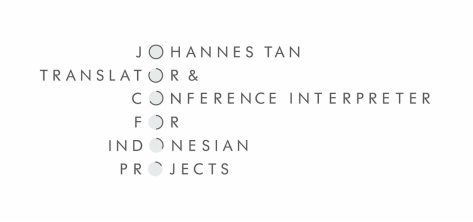Between Stockholm Syndrome and Lima Syndrome
Part 16: On Supernatural Intervention and the Bell-Shaped Curve of Normal Distribution

Since in Isaiah 45:6-7 God had admitted He Himself "forms the light, and creates darkness, makes peace, and creates evil" (Part 15: The Nadir of Barbarity), it seems that we, humans, are off the hook. Praise the Lord! But wouldn't that be a grave self-insult to humanity? While animals kill merely to survive, we humans, respectable Homo sapiens, kill each other for religious and sinister reasons? If that is not egregious enough, then we reconstruct all kind of justifications and excuses to blame God for it? The Golden Rule, Karma and Ethics of Personal Responsibility aside, are we that low and irresponsible? Go figure.
Indeed philosophers have argued for centuries about the source of evil. Are humans inherently evil or good? According to English political philosopher Thomas Hobbes (1588-1679), human beings are just innately bad and no one can do much about it. In the absence of what Hobbes referred to as a Social Contract, humans live in a state of nature where everyone's life is "solitary, poor, nasty, brutish and short." Opposing this gloomy Hobbesian view is that of Genevan philosopher Jean-Jacques Rousseau (1712-1778). Contrary to Hobbes, Rousseau believed that "morality was not a societal construct, but rather ‘natural’ in the sense of ‘innate’, an outgrowth from man's instinctive disinclination to witness suffering, from which arise the emotions of compassion or empathy."
Naturally this Hobbes versus Rousseau dialectic has caused ripple effects transcending political philosophy into different disciplines. Most notably are the Nature versus Nurture debate in Psychology, and the Theory X versus Theory Y concept in modern management. In psychology, the Nature versus Nurture debate concerns the extent to which particular aspects of human characteristics are a product from Nature (genetically inherited) or Nurture (socio-culturally learned or acquired).
In the annals of modern management, MIT management professor Douglas Murray McGregor (1906-1964) introduced the concept of Theory X and Theory Y in his landmark book, The Human Side of Enterprise (1960). According to McGregor, type X individuals are inherently lazy and unhappy with their jobs. They need an authoritarian management style to ensure fulfillment of their objectives. They also need close supervision with comprehensive systems of control and a hierarchical structure to control them at every level. On the other hand, type Y individuals can be ambitious, self-motivated and exercise self-control. They enjoy their mental and physical work duties and treat work as natural as play. Given the proper conditions, type Y employees will learn to seek out and accept responsibility, exercise self-control and self-direction in accomplishing their objectives.
With this background, let's return to our fundamental question: are humans basically Hobbesian evil or Rousseauan good? Are they a product from Nature with genetically inherited characteristics or from Nurture with socio-culturally learned or acquired ones? Are they lazy type X individuals or self-motivated type Y ones?
As far as the source of evil is concerned, I actually agree with British science writer Sir Arthur Charles Clarke (1917-2008). A co-author of 2001: A Space Odyssey, in his illuminating essay titled Credo (1991), Clark proposed the importance to apply probability and statistics in theology. But, wait, what have these two dry academic disciplines got anything to do with the perpetual Whence Cometh Evil question? Perhaps much more than what conventional wisdom allows. There is no supernatural intervention in human affairs, Clark argued. The problem of evil does not exist, he said; because "it is an inevitable consequence of the bell-shaped curve of normal distribution."
Like bad apples and defective products, there will always be evil people (or lazy type X employees) in a normal distribution. They can be minimized, but not eliminated altogether. That's how Mother Nature works. Bad apples may be minimized by applying the latest agricultural biotechnology, for example. Defective products may be minimized by applying best manufacturing processes and practices. Indeed dealing with evil is more complicated, as humans are much more complex than apples or manufactured products. The point is that the very same rational and scientific approach—to apply agricultural biotechnology and best manufacturing processes and practices—may be adopted to minimize the number of actors in religious wars and persecutions, public stoning, decapitations, suicide bombings, hate crime, abortion-clinic and theater massacres, school shootings, police brutality, and so on. Statistically speaking, as Clark had argued, aren't they all consequences of the bell-shaped curve of normal distribution?
Indeed to accept those evil acts as a statistical reality does not mean that we should tolerate them passively in resignation. Quite the contrary. If we can accept that there is actually no supernatural intervention in human affairs—God certainly does not have the time to micro-manage bad apples, defective products, lazy employees, and suicide bombers—then we have to apply scientific instead of religious approaches. For why an omniscient and omnipotent God—who knows everything, including our intentions—still has to micro-manage each and everyone of us based on individual prayers of 7.349 billion people (as of July 1, 2015) living in 24 time zones?
Just imagine the noise pollution!
[To be continued.]
Johannes Tan, Indonesian Translator & Conference Interpreter
Indeed philosophers have argued for centuries about the source of evil. Are humans inherently evil or good? According to English political philosopher Thomas Hobbes (1588-1679), human beings are just innately bad and no one can do much about it. In the absence of what Hobbes referred to as a Social Contract, humans live in a state of nature where everyone's life is "solitary, poor, nasty, brutish and short." Opposing this gloomy Hobbesian view is that of Genevan philosopher Jean-Jacques Rousseau (1712-1778). Contrary to Hobbes, Rousseau believed that "morality was not a societal construct, but rather ‘natural’ in the sense of ‘innate’, an outgrowth from man's instinctive disinclination to witness suffering, from which arise the emotions of compassion or empathy."
Naturally this Hobbes versus Rousseau dialectic has caused ripple effects transcending political philosophy into different disciplines. Most notably are the Nature versus Nurture debate in Psychology, and the Theory X versus Theory Y concept in modern management. In psychology, the Nature versus Nurture debate concerns the extent to which particular aspects of human characteristics are a product from Nature (genetically inherited) or Nurture (socio-culturally learned or acquired).
In the annals of modern management, MIT management professor Douglas Murray McGregor (1906-1964) introduced the concept of Theory X and Theory Y in his landmark book, The Human Side of Enterprise (1960). According to McGregor, type X individuals are inherently lazy and unhappy with their jobs. They need an authoritarian management style to ensure fulfillment of their objectives. They also need close supervision with comprehensive systems of control and a hierarchical structure to control them at every level. On the other hand, type Y individuals can be ambitious, self-motivated and exercise self-control. They enjoy their mental and physical work duties and treat work as natural as play. Given the proper conditions, type Y employees will learn to seek out and accept responsibility, exercise self-control and self-direction in accomplishing their objectives.
With this background, let's return to our fundamental question: are humans basically Hobbesian evil or Rousseauan good? Are they a product from Nature with genetically inherited characteristics or from Nurture with socio-culturally learned or acquired ones? Are they lazy type X individuals or self-motivated type Y ones?
As far as the source of evil is concerned, I actually agree with British science writer Sir Arthur Charles Clarke (1917-2008). A co-author of 2001: A Space Odyssey, in his illuminating essay titled Credo (1991), Clark proposed the importance to apply probability and statistics in theology. But, wait, what have these two dry academic disciplines got anything to do with the perpetual Whence Cometh Evil question? Perhaps much more than what conventional wisdom allows. There is no supernatural intervention in human affairs, Clark argued. The problem of evil does not exist, he said; because "it is an inevitable consequence of the bell-shaped curve of normal distribution."
Like bad apples and defective products, there will always be evil people (or lazy type X employees) in a normal distribution. They can be minimized, but not eliminated altogether. That's how Mother Nature works. Bad apples may be minimized by applying the latest agricultural biotechnology, for example. Defective products may be minimized by applying best manufacturing processes and practices. Indeed dealing with evil is more complicated, as humans are much more complex than apples or manufactured products. The point is that the very same rational and scientific approach—to apply agricultural biotechnology and best manufacturing processes and practices—may be adopted to minimize the number of actors in religious wars and persecutions, public stoning, decapitations, suicide bombings, hate crime, abortion-clinic and theater massacres, school shootings, police brutality, and so on. Statistically speaking, as Clark had argued, aren't they all consequences of the bell-shaped curve of normal distribution?
Indeed to accept those evil acts as a statistical reality does not mean that we should tolerate them passively in resignation. Quite the contrary. If we can accept that there is actually no supernatural intervention in human affairs—God certainly does not have the time to micro-manage bad apples, defective products, lazy employees, and suicide bombers—then we have to apply scientific instead of religious approaches. For why an omniscient and omnipotent God—who knows everything, including our intentions—still has to micro-manage each and everyone of us based on individual prayers of 7.349 billion people (as of July 1, 2015) living in 24 time zones?
Just imagine the noise pollution!
[To be continued.]
Johannes Tan, Indonesian Translator & Conference Interpreter

 RSS Feed
RSS Feed